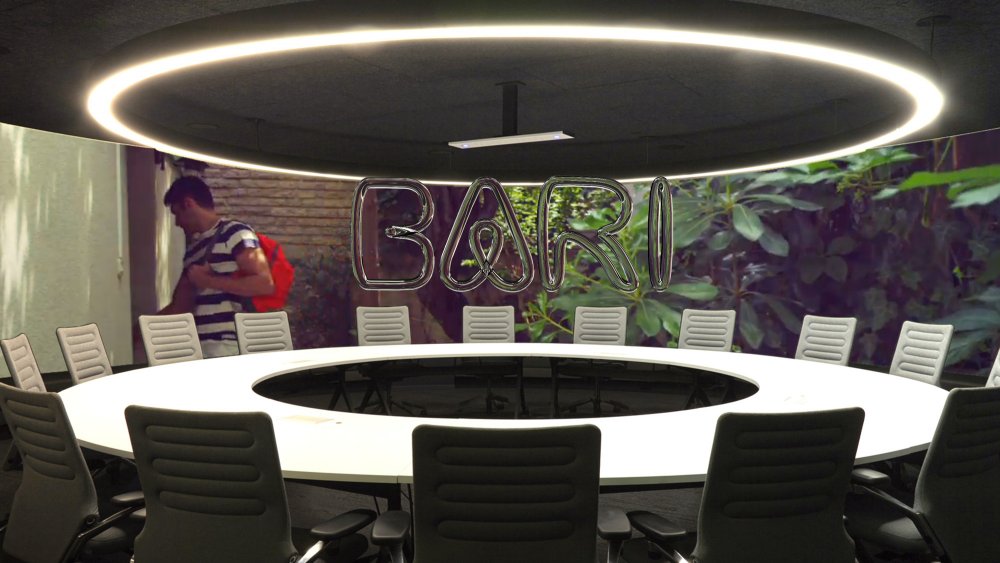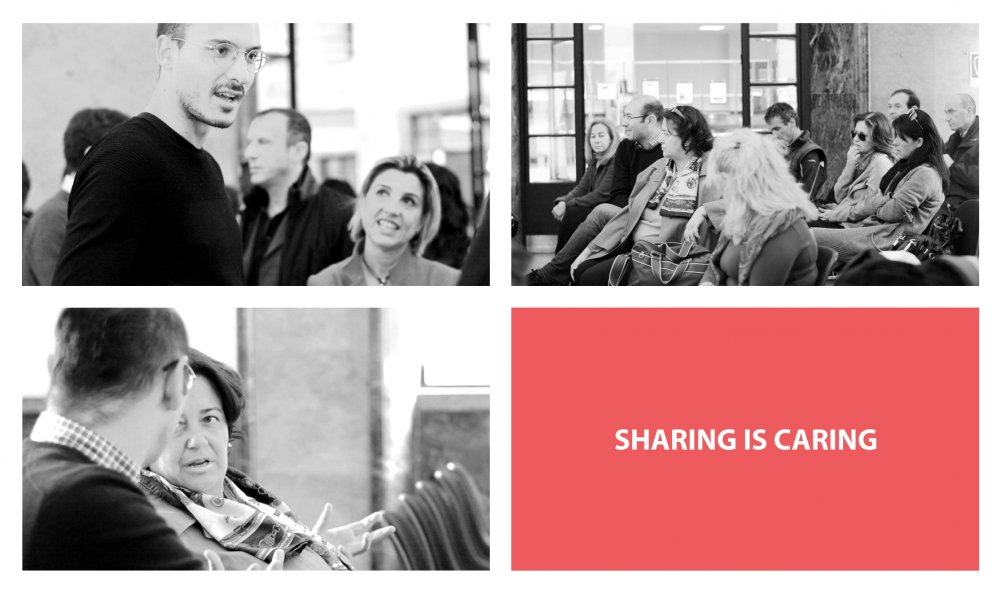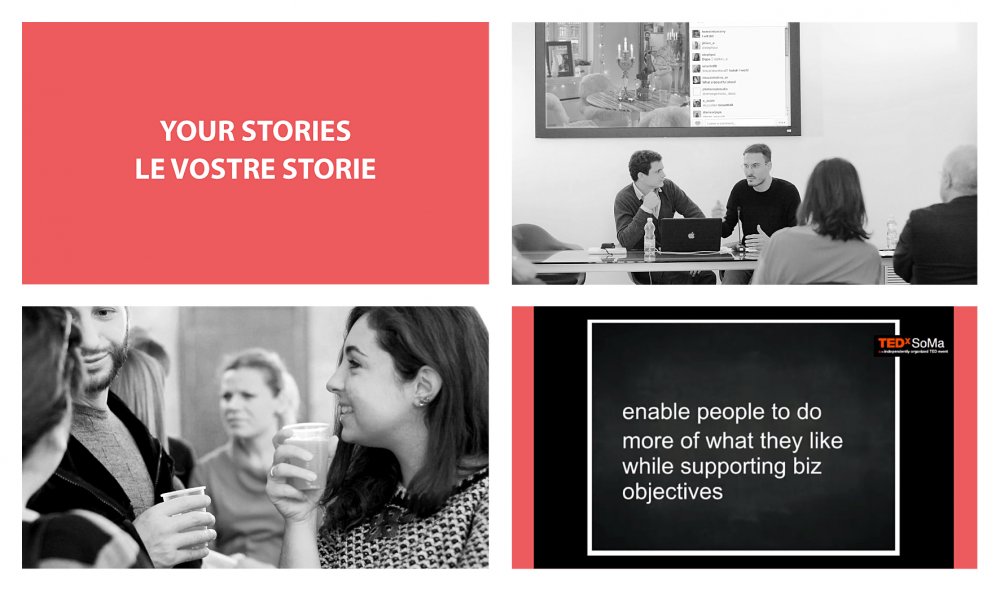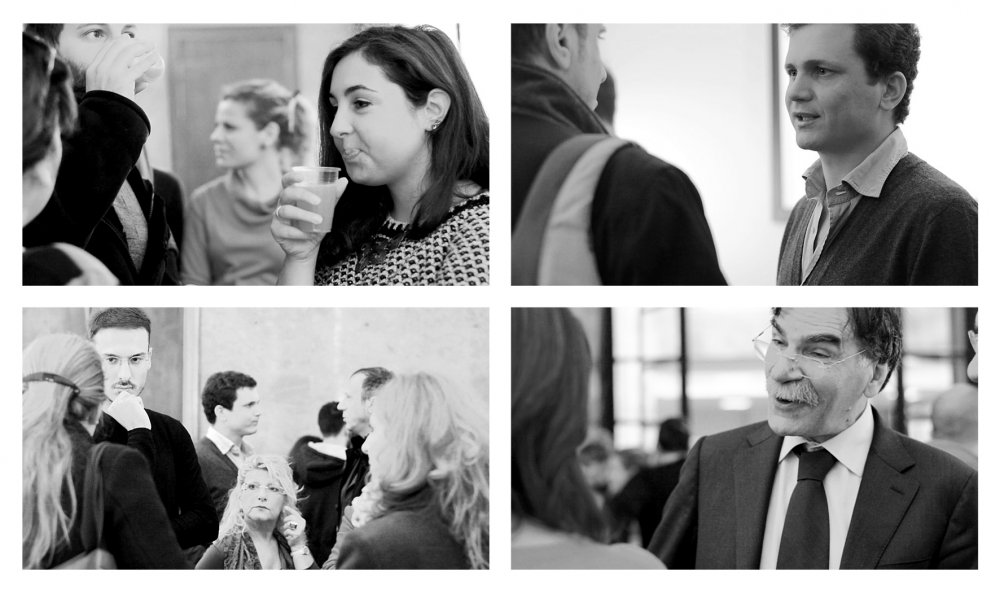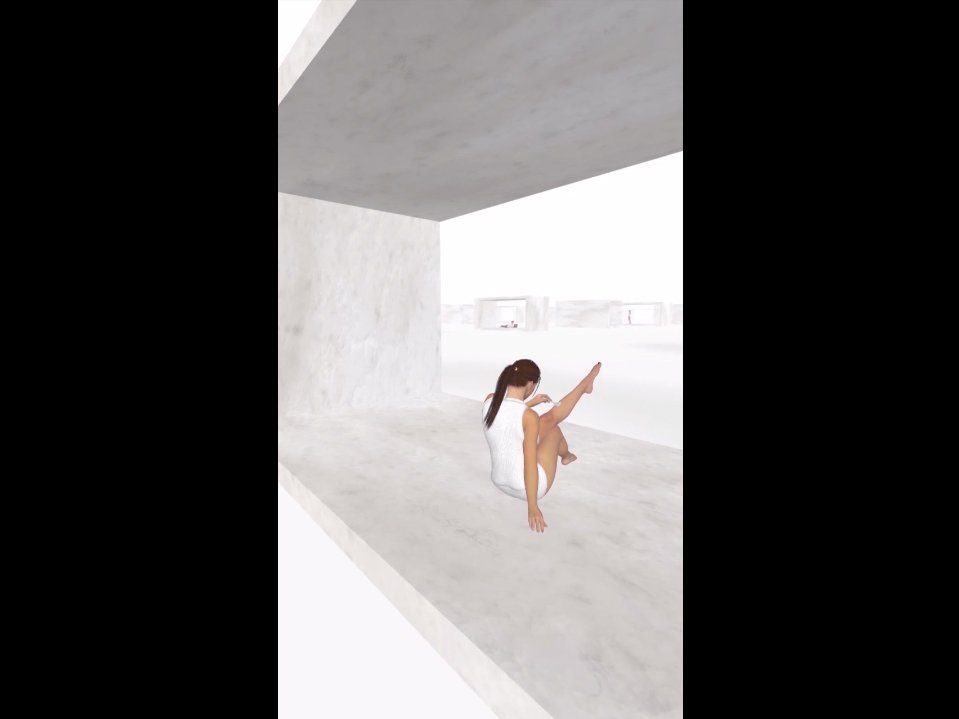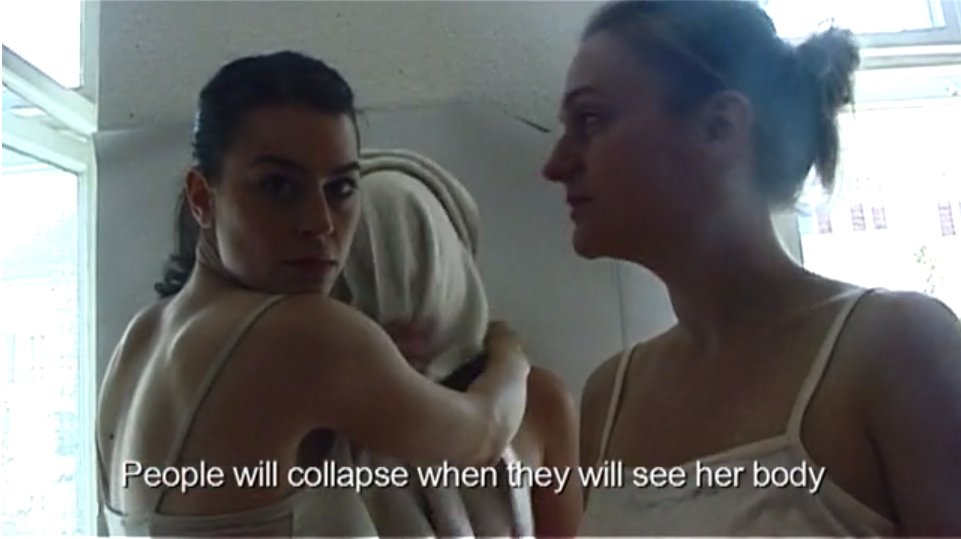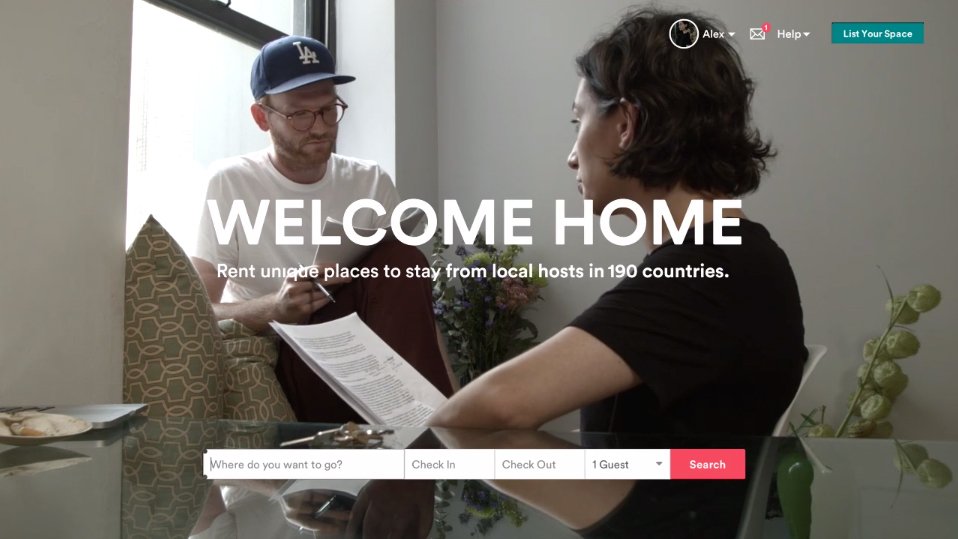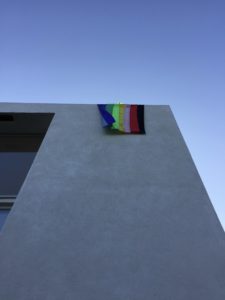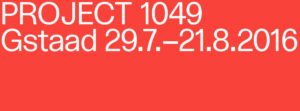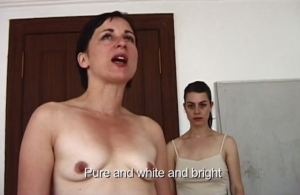Looking at the documentation of Airbnb Pavilion‘s Community Development Meeting, there’s little that differentiates the art performance and online exhibition from the corporate residential hosting enterprise that essentially began in disaster relief. The project, headed by London-based collective of architects and “interior decorators” called fàlo (see: phallus) – including Fabrizio Ballabio, Alessandro Bava, Luis Ortega Govela, and Octave Perrault – carries on a series of globe-trotting events began at the 2014 Venice Architecture Biennale and resurfaced in Paris, New York and a couple online locations, eventually emerging in a defunct Novocento-style Post Office in Bari, Italy.
Realised alongside 63rd-77th STEPS founder and curator Fabio Santacroce, there are some glaring parallels to be drawn between that physical symbol of global communication in a postal service administered by a fascist government and the development strategy of Airbnb Global Head of Community Douglas Atkin. The event opened with the Community Development Meeting on November 27, the ‘performance’ presenting a first ever physical communion of local Airbnb hosts in Bari – reached via fly-posting, as well as messaging through the official website that required simulating roughly a hundred reservations. Interesting, that the breakfast that featured some of the corporate language and methods for “community building” in a Silicon Valley-style presentation would also be a first for the nearly 600 people and properties available for rent through the Airbnb portal.
The documentation to follow features grayscale image boxes of people suspended in conversation and affirmative slogans like “SHARING IS CARING” and “COMMUNITY OF HOSTS”, accompanied by smiling emojiis or a Euro sign cradling the Dollar, while the site shamelessly announces its success as built on “YOUR STORIES”. Hence, the Do More of What They Love online exhibition to accompany it, which appears less about what Atkin calls “social glue” in his The Glue Project strategy website and more about the business that can be made from it in a “venture that’s dedicated to helping people make successful communities and the loyalty that results”.
Building on the ‘Do What You Love’ culture of modern labour economics, the home for Airbnb Pavilion is not so much about the traditional notion of a community that’s tied to a physical space but the ‘home’ icon of an online portal that’s mediated in the interests of its administrator where Do More of What They Love lives. It features the video work of four artists, including Maja Cule, Juliette Bonneviot, Rosa Aiello and Keren Cytter, comparing the capital exploitation of the exchange economy that the Airbnb corporate giant represents to an indignant Aiello’s navigation of a half-blind first-person protagonist searching for her glasses in ‘First Person Leaky’ (2014). She mutters “one of the guests got particularly drunk and made it clear that my home had been broken into and a bug placed inside one of my rooms” about her “close, personal relationship” with a branch of the Communist party. Meanwhile Cule’s ‘Facing the Same Direction‘ (2014) – premiered at London’s Arcadia Missa for the artist’s eponymous solo exhibition – follows writer and illustrator Anna Kachiyan as she seeks to raise $80,000 via an indiegogo campaign to “pursue independent interests in projects”.
A simulation of space populated by avatars in Bonneviot’s ‘Minimal jeune fille web’ (2014) features animations of young women’s bodies contemplating consumer items in silence via subtitles: “the polypropylene cap has a strong smell of petroleum, which transmits to the water and kills the concept of a healthy water bottle”. Meanwhile, Bonneviot’s CGI bodies meet Cytter’s flesh ones as a woman past her ‘prime’ considers the long-term consequences of her own objectification and eventual disappearance in ‘Der Spiegel‘ (2007): “I need to prepare, stretch my skin like a lampshade”. These are the ruminations on the capitalisation and commodification of private and intimate space set to a browser window backdrop of collages. There’s a woman posing with an exercise sheet stating, “I home share because… I don’t have to have a day job and can pursue acting & writing!”, a list of ten easy steps to “Successful Culting” and an exponentially growing graph of “Community Life Stages” taken straight from Atkin’s The Glue Project website.
It’s perhaps a little known fact that Airbnb Proper is a corporate giant that capitalised on the idealistic notion of the sharing economy in 2008. It was a brainwave that pounced on a post-GEC population with nothing but its homes to offer in exchange for a livelihood. It was the moment to turn couch-surfing into a business enterprise. All this, at the same time as the rise of social media, where the utopian ideal of a networked online culture existing outside of a capital market would eventually be drawn right back in. **
